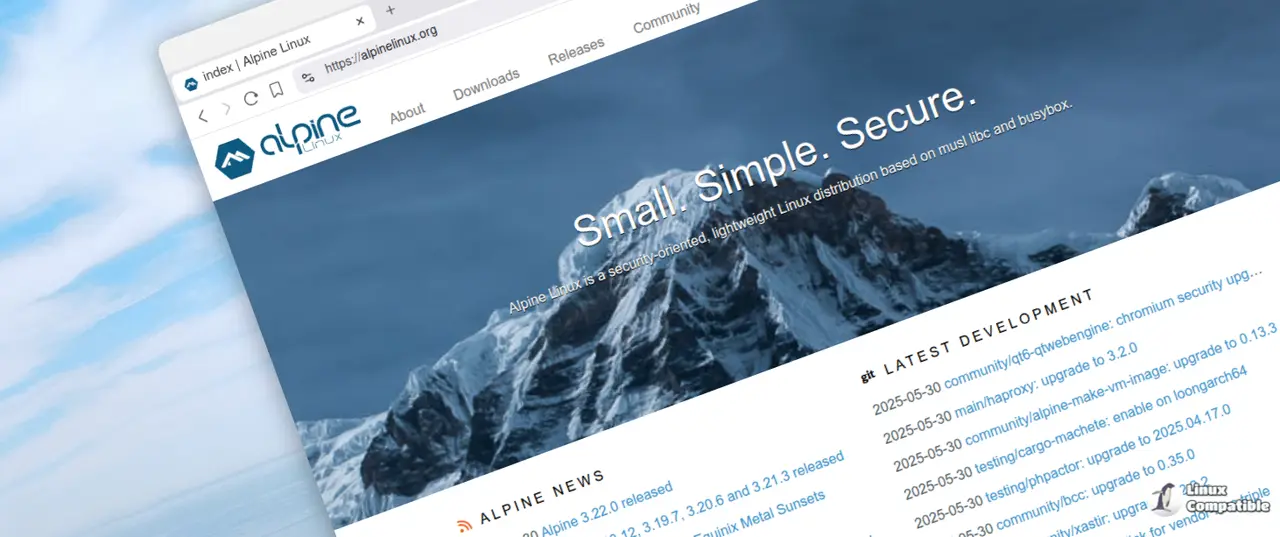Alpine Linux has officially released version 3.22.0, the first in its stable series. This version introduces various key features and updates, including popular software packages such as LLVM 20, Dovecot 2.4, nginx 1.28, Node.js 22.16 (LTS), Ruby 3.4, Rust 1.87, Xen 4.20, BIRD 3.1, Crystal 1.16, Docker 28, GNOME 48, Go 1.24, KDE Plasma 6.3, and LXQt 2.2.
One significant change in this release is the replacement of gummiboot with systemd-efistub, which means that the secureboot-hook no longer supports gummiboot-efistub. Users are advised that if they haven't modified the efistub_file in the secureboot configuration, no action is required on their part. Additionally, gummiboot-efistub has been moved to the testing phase and is no longer actively maintained.
For users looking to upgrade, it's essential to utilize the command `apk upgrade --available` when transitioning between major versions. Those with separate filesystems for / and /usr, which is an unsupported configuration, should take special precautions during the upgrade process.
The full details of changes, including upgrade notes and additional modifications, can be found in the Alpine Linux wiki, git log, and bug tracker. The Alpine team expresses gratitude to contributors who provided patches, bug reports, and documentation support, as well as to organizations like GIGABYTE, Linode, and IBM for their hardware and hosting contributions.
As the Alpine Linux community continues to grow, users can anticipate more updates and enhancements in future releases, ensuring the system remains robust and cutting-edge for various applications
One significant change in this release is the replacement of gummiboot with systemd-efistub, which means that the secureboot-hook no longer supports gummiboot-efistub. Users are advised that if they haven't modified the efistub_file in the secureboot configuration, no action is required on their part. Additionally, gummiboot-efistub has been moved to the testing phase and is no longer actively maintained.
For users looking to upgrade, it's essential to utilize the command `apk upgrade --available` when transitioning between major versions. Those with separate filesystems for / and /usr, which is an unsupported configuration, should take special precautions during the upgrade process.
The full details of changes, including upgrade notes and additional modifications, can be found in the Alpine Linux wiki, git log, and bug tracker. The Alpine team expresses gratitude to contributors who provided patches, bug reports, and documentation support, as well as to organizations like GIGABYTE, Linode, and IBM for their hardware and hosting contributions.
As the Alpine Linux community continues to grow, users can anticipate more updates and enhancements in future releases, ensuring the system remains robust and cutting-edge for various applications
Alpine 3.22.0 released
Alpine Linux 3.22.0 has been released, marking the inaugural version in the stable series. The system comprises features such as LLVM, Dovecot, nginx, Node.js, Ruby, Xen, Bird, Crystal, Docker, GNOME, Go, KDE Plasma, and LXQt. Notable modifications involve the substitution of gummiboot with systemd-efistub, and the secureboot-hook has ceased support for gummiboot-efistub. Upgrade notes are accessible, and the comprehensive list of changes can be located in the wiki, git log, and bug tracker.


